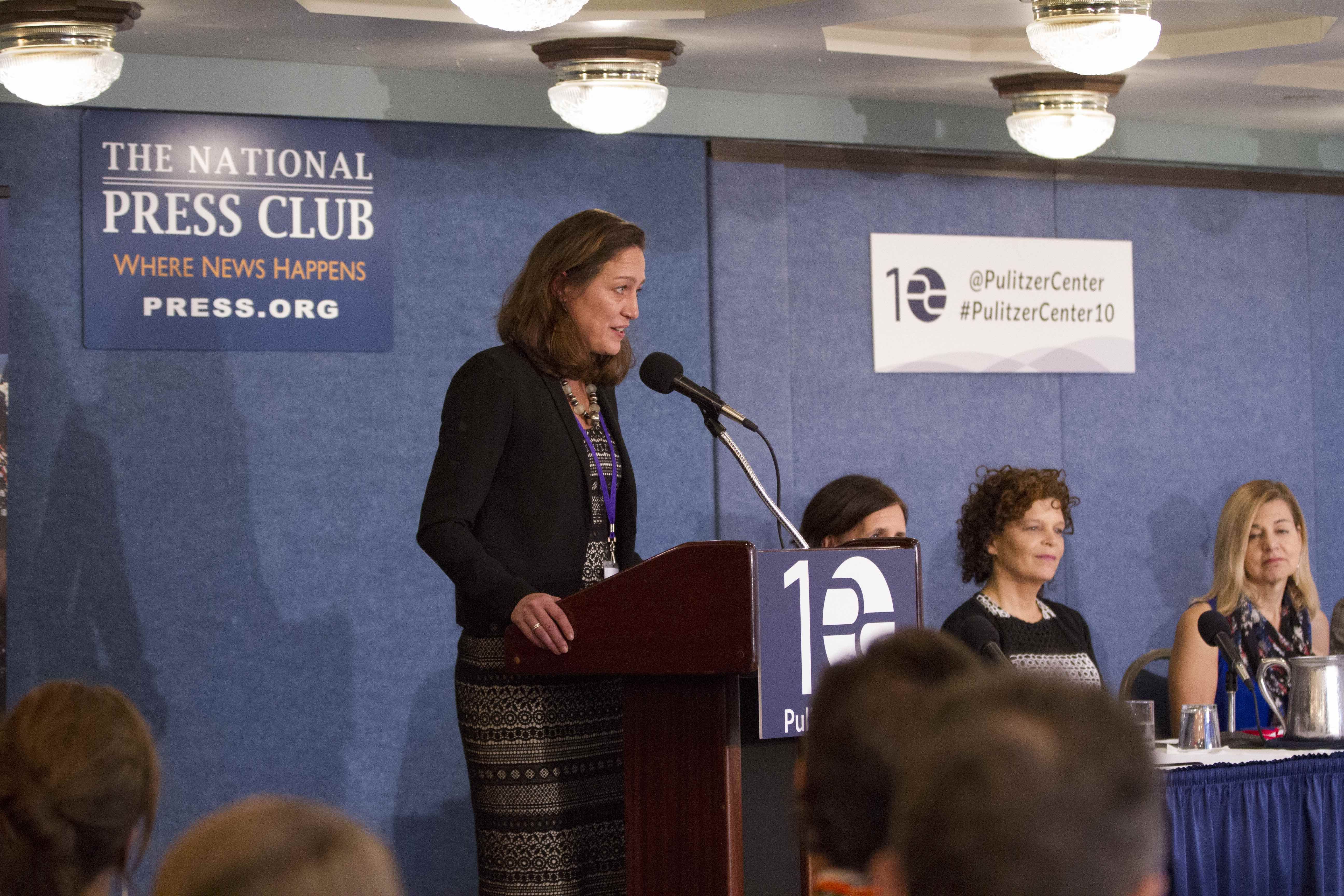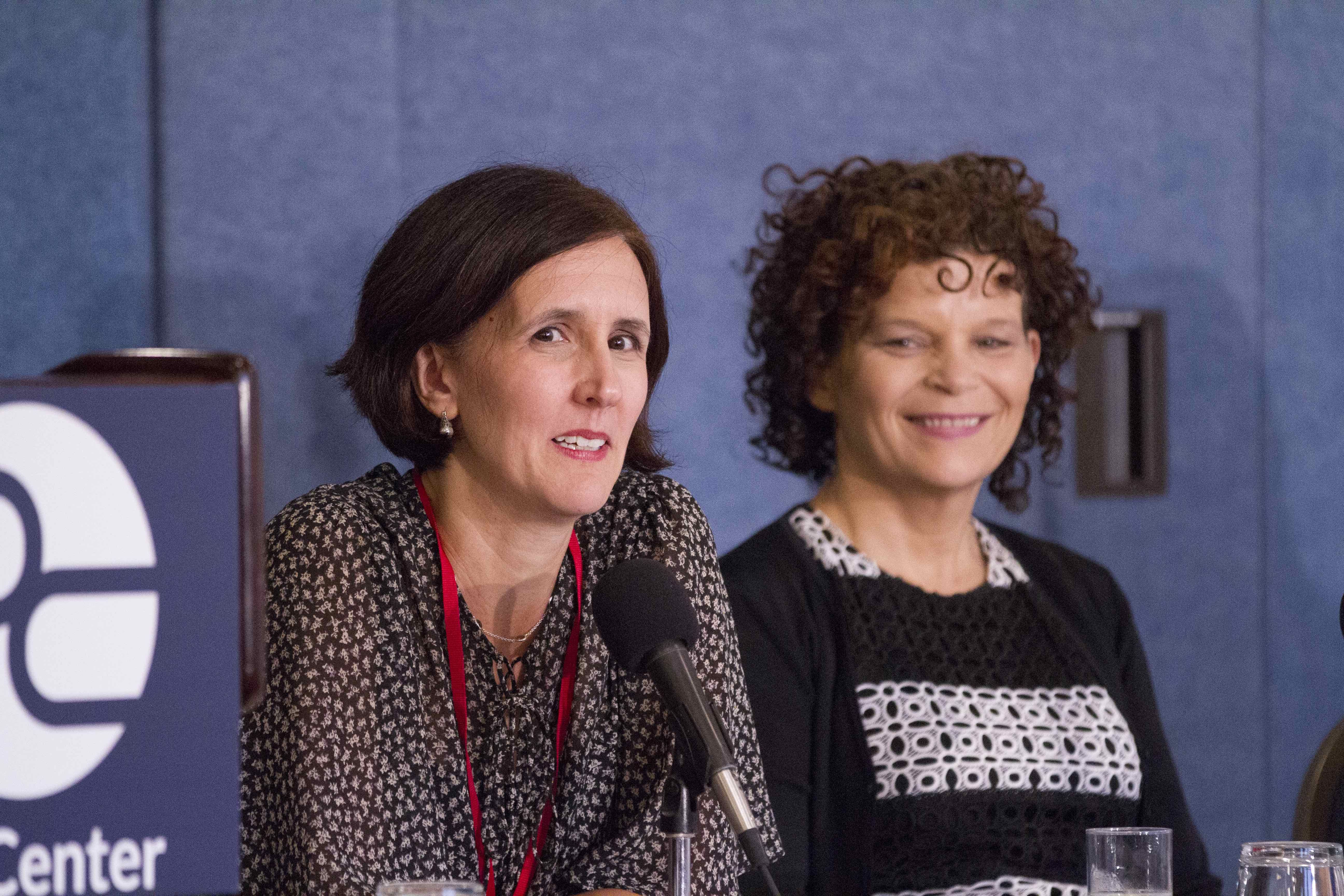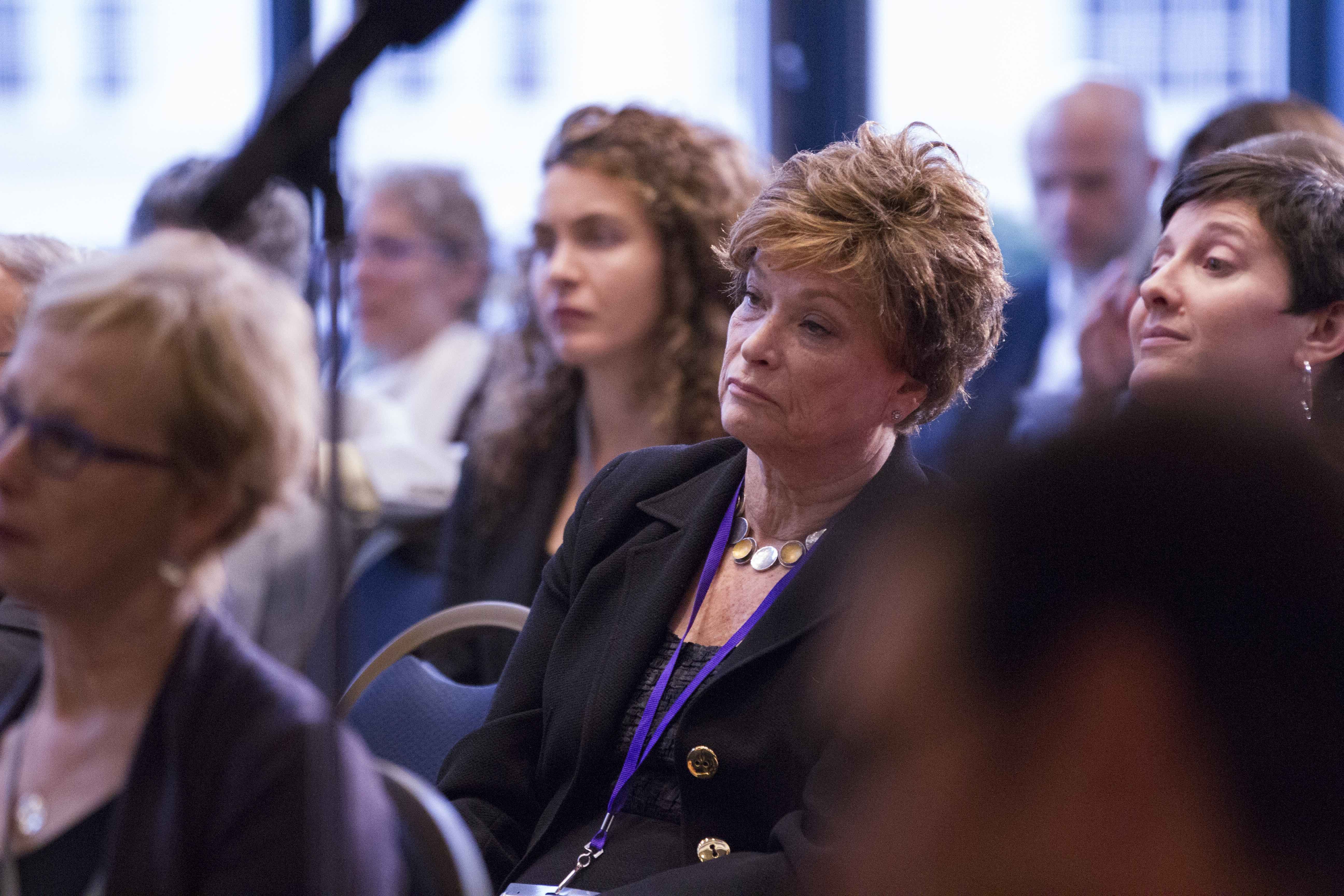In the first of two concurrent panel series on Saturday, October 8 at the National Press Club, guests of the Pulitzer Center gathered for the discussion, “Public-Good Journalism: What It Is, How To Fund It, and How to Assure Its Independence.” Pulitzer Center Managing Director Nathalie Applewhite led the discussion and was joined by panelists Margaret Sullivan, media columnist at The Washington Post; Carroll Bogert, president at The Marshall Project; Marina Walker Guevara, deputy director at the International Consortium of Investigative Journalists; Lauren Pabst, program officer for journalism and media at the John D. and Catherine T. MacArthur Foundation; and Monika Bauerlein, chief executive officer of Mother Jones.
In “What’s Missing From Journalism,” an article published this summer by Bauerlein and referenced during the panel, Bauerlein writes that time, more so than “brilliance, writing flair, or deep familiarity,” is what’s most essential to producing high-quality investigative work. She cited the 35,000-word piece by Shane Bauer about working as a private prison guard published by Mother Jones this summer. On August 18, weeks after the story featured in the magazine’s July/August issue, the Justice Department announced an end to private prison contracts. This impact was viewed as significant, and contributions to the magazine spiked. Bauerlein’s challenge is to sustain this over time.
Her conservative estimate of the cost of Bauer’s prison story is $350,000. For the same piece, advertising revenue hit roughly $5,000.
Public good, here analogous to public interest, does not appear sustainable through commercial revenue alone.
ICIJ’s Walker Guevara spoke to a model grounded in trust that uses technology to build a worldwide network. With an estimated 11.5 million total documents, partners’ location-specific knowledge was essential to the Panama Papers investigation. The “lone wolf” source or whistleblower is insufficient means to fully realizing the story. Work at this scale requires a mentality of “radical sharing,” said Walker Guevara. But it also needs investment. The non-profit media coordinator is the connective tissue of a project at this scale.
When the public shares the burden, as they might donating to a political campaign, they help ensure that they remain primary beneficiaries. And for the publication, the risk is spread. This is especially true where the work serves to expose institutional transgressions or hold special interests to account.
Pabst, program officer at the MacArthur Foundation, spoke of efforts to maintain a sincere distance from the editorial stance of beneficiaries, specifically those organizations grouped under their banner of Professional Nonprofit Reporting.
Sullivan touched on the budget deficits that cripple local newsrooms and the challenge of sustaining work that by its nature struggles to attract commercial funding. Her experience at the Buffalo News, where she was editor and vice president, setting up a now-defunct investigations team, is in contrast with the “runway” now afforded at The Washington Post by proprietor Jeff Bezos, the multi-billionaire owner of Amazon.com.
Prompted by a question from 2016 student fellow Abe Kenmore about the industry's sustainability over time, Walker Guevara discussed current efforts by the U.S. government to finance investigative reporting on corruption overseas by way of a $5 million grant from the State Department. It was a sentiment echoed earlier in a remark by Bogert who said that he “who pays the piper calls the tune.”











